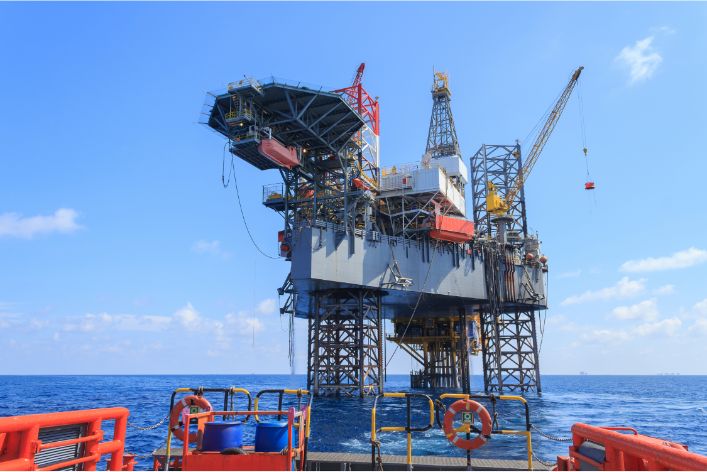Let’s explore the role and significance of drilling engineers in the gas industry of Nigeria.
Nigeria’s gas industry plays a crucial role in the country’s economy, accounting for a significant portion of its revenue. Drilling engineering is an essential aspect of this industry, involving the process of designing, planning, and executing drilling operations.
Drilling engineers are responsible for ensuring the efficiency and safety of drilling operations, minimizing risks, and maximizing production.
Without drilling engineers, the gas industry in Nigeria would face significant challenges, including drilling failures, increased costs, and negative environmental impacts.
Therefore, it is imperative to acknowledge the significance of drilling engineers in Nigeria’s gas industry and invest in their training and development. Along with other professionals in the gas industry, drilling engineers contribute to the sustainable development of Nigeria’s economy and energy sector.
In the next section, we will explore the duties and responsibilities of drilling engineers in Nigeria’s gas industry and how they impact the industry’s success.
Read: How to Become a Successful Pipeline Engineer in Nigeria
Role of Drilling Engineers in the Gas Industry of Nigeria
Drilling engineers play a vital role in Nigeria’s gas industry. Here are some of the key responsibilities of drilling engineers:
Planning and designing drilling operations
Drilling engineers are responsible for planning and designing drilling operations. They evaluate the geological data to identify potential gas reserves.
They then determine the appropriate drilling methods, equipment, and materials needed for the operation. Also, they develop drilling schedules and cost estimates.
Ensuring safety and environmental regulations are met
Drilling engineers are responsible for ensuring that drilling operations are conducted safely and in compliance with environmental regulations.
They design wellbore integrity plans to prevent blowouts and other accidents. They also evaluate the environmental impact of drilling activities and develop plans to minimize that impact.
Monitoring and optimizing drilling performance
Drilling engineers monitor drilling operations to ensure that they are proceeding as planned. They analyze data from drilling operations to identify opportunities to optimize performance, such as increasing drilling speed or reducing drilling costs. They also troubleshoot any issues that may arise during drilling operations.
Troubleshooting drilling issues
Drilling engineers are responsible for troubleshooting any issues that may arise during drilling operations.
They use their technical expertise to identify and address problems and develop solutions to ensure that drilling operations proceed safely and efficiently.
Collaborating with other industry professionals
Drilling engineers collaborate with other industry professionals, such as geologists, production engineers, and contractors.
They work together to ensure that drilling operations are conducted safely, efficiently, and in compliance with all regulations. They also share information and best practices to improve the overall effectiveness of drilling operations.
In a nutshell, drilling engineers play a critical role in Nigeria’s gas industry. They are responsible for planning and designing drilling operations, ensuring safety and environmental compliance, optimizing drilling performance, troubleshooting drilling issues, and collaborating with other industry professionals.
Without drilling engineers, the gas industry would not be able to function safely, efficiently, and effectively.
Read: The Demand for Petroleum Engineers in Nigeria: A Deep Dive
Qualifications and Training for Drilling Engineers
Education Requirements
Becoming a drilling engineer in Nigeria’s gas industry requires a strong educational background in engineering. A bachelor’s degree in petroleum engineering, mechanical engineering, or chemical engineering is necessary for this career path. Coursework should include drilling technology, geology, drilling fluids, well completion, and field operations management.
Certification and Licensing
To work as a drilling engineer in Nigeria’s gas industry, certain certifications and licenses are required. Candidates must hold a professional engineer (PE) license and pass the Society of Petroleum Engineers certification exam.
Other certifications such as Project Management Professional (PMP) and Occupational Safety and Health Administration (OSHA) are highly desirable in this field.
On-the-Job Training and Experience
On-the-job training is essential in the drilling engineering field. New graduates are typically hired as entry-level engineers and work alongside experienced professionals to gain practical experience.
It can take up to five years to become a competent drilling engineer. During this time, engineers learn various technical skills such as designing drilling programs, analyzing well data, and evaluating drilling performance.
They also learn soft skills such as communication, teamwork, and leadership.
Continuing Education Opportunities
Continuing education is essential to keep up with industry trends, technologies, and regulations. Drilling engineers can attend workshops, seminars, and conferences to learn about new technologies and techniques.
Professional organizations such as the Society of Petroleum Engineers and the American Association of Drilling Engineers offer online courses and certifications. Obtaining a master’s degree in engineering or business administration can also be beneficial for career growth.
Becoming a drilling engineer in Nigeria’s gas industry requires a strong educational background in engineering, professional licensure, practical experience, and ongoing education.
The drilling engineering field is highly technical, and engineers must stay abreast of the latest developments to remain competitive. If you are interested in pursuing a career as a drilling engineer, it is essential to research the educational and certification requirements and develop a solid plan for career advancement.
Read: Understanding the Role of Geoscientists in Nigeria’s Oil Industry

Career Opportunities for Drilling Engineers in Nigeria
Drilling engineers play a critical role in the oil and gas industry in Nigeria, which is Africa’s largest crude oil exporter. The country is also a top producer of natural gas. As the demand for energy continues to rise, the need for drilling engineers has never been higher.
Various job positions within the industry
- Drilling engineers can work in various positions, such as drilling supervisors, drilling operations managers, and drilling rig managers.
- They can also work as drilling consultants or technical advisors to oil and gas companies.
- Some drilling engineers work for drilling contractors, providing services to oil and gas companies.
Salary Potential
- The salary of drilling engineers in Nigeria varies depending on their level of experience and job position.
- Entry-level drilling engineers can earn between 3 to 6 million naira per annum, while experienced drilling engineers can earn between 10 to 15 million naira per annum.
- Managers in drilling operations or rig managers can earn more than 20 million naira per annum.
Advancement opportunities
- Drilling engineers can advance their careers by pursuing higher education, such as obtaining a master’s degree or a Ph.D. in petroleum engineering.
- They can also advance by taking on more responsibilities in their positions or by working in different countries or regions.
- Drilling engineers who have extensive experience can become drilling consultants or start their firms, providing services to oil and gas companies.
Job prospects and growth potential in the future
- The demand for drilling engineers is expected to increase as Nigeria’s oil and gas industry continues to grow.
- Nigeria has significant untapped gas reserves, and as the country continues to shift toward cleaner energy sources, drilling engineers will play a critical role in the exploration and production of natural gas.
- Drilling engineers can also play a crucial role in addressing environmental concerns associated with oil and gas production. For example, they can work on developing new technologies that reduce the environmental impact of drilling operations.
Essentially, drilling engineers have various career opportunities within Nigeria’s oil and gas industry and can earn competitive salaries with excellent advancement opportunities.
As the energy sector continues to evolve and adapt to new global realities, drilling engineers will play an increasingly essential role in ensuring Nigeria’s energy security and sustainability.
Read: Exploring the Top Paying Oil and Gas Professions in Nigeria
Conclusion
Drilling engineers are a crucial asset to Nigeria’s gas industry. They play a critical role in ensuring the safe and efficient extraction of gas from the ground. As the demand for natural gas continues to grow, their contribution to the industry will only increase.
It is essential that the development and training of drilling engineers are continued to ensure they have the necessary skills and knowledge to keep up with the industry’s evolving needs. This will not only benefit the engineers but also the gas industry as a whole.
For students and professionals interested in pursuing a career in the gas industry, drilling engineering is a highly sought-after field. With the industry’s growing demand for natural gas, there will be an increasing need for qualified drilling engineers.
On a final note, drilling engineers play a critical role in Nigeria’s gas industry and are instrumental in ensuring the safe and efficient extraction of gas. The continued development and training of drilling engineers are essential for the growth and success of the industry.




